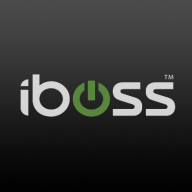


Microsoft Defender for Cloud Apps and Forcepoint ONE are competing in the cloud security market. While Microsoft Defender for Cloud Apps is renowned for its seamless integration within the Microsoft ecosystem, providing robust compatibility and analytics, Forcepoint ONE holds an advantage with its comprehensive security features and intuitive use, making it a justifiable investment despite higher pricing.
Features: Microsoft Defender for Cloud Apps offers advanced threat detection, comprehensive analytics, and seamless integration with Microsoft 365. Forcepoint ONE focuses on data loss prevention, holistic threat protection across platforms, and an intuitive security model.
Room for Improvement: Microsoft Defender for Cloud Apps could enhance its cross-platform compatibility, reduce complexity in policy configuration, and improve user interface experience. Forcepoint ONE could benefit from a streamlined integration process, expanded customization for specific needs, and a reduction in resource consumption for smoother operation.
Ease of Deployment and Customer Service: Microsoft Defender for Cloud Apps is easily deployable within Microsoft environments, supported by robust customer service facilitating seamless transitions. Forcepoint ONE boasts a versatile deployment model suited for various infrastructures and offers dedicated customer service.
Pricing and ROI: Microsoft Defender for Cloud Apps offers a cost-effective solution for businesses already invested in Microsoft services, delivering strong ROI through ecosystem integration. Forcepoint ONE, while potentially more expensive initially, provides extensive security features that promise a worthwhile long-term investment.
| Product | Mindshare (%) |
|---|---|
| Microsoft Defender for Cloud Apps | 6.0% |
| iboss | 2.7% |
| Forcepoint ONE | 2.1% |
| Other | 89.2% |
| Company Size | Count |
|---|---|
| Small Business | 6 |
| Midsize Enterprise | 6 |
| Large Enterprise | 6 |
| Company Size | Count |
|---|---|
| Small Business | 10 |
| Midsize Enterprise | 3 |
| Large Enterprise | 12 |
| Company Size | Count |
|---|---|
| Small Business | 15 |
| Midsize Enterprise | 10 |
| Large Enterprise | 19 |
Iboss offers a comprehensive cloud-based security platform valued for its scalability and autonomous features, ensuring robust security with easy deployment and management capabilities.
Renowned for its robust security architecture, Iboss integrates seamlessly within diverse networks, delivering efficient granular filtering and advanced content categorization. Its single pane of glass console provides ease of management, allowing rapid scalability suitable for rapidly deploying environments. Operates in BYOD setups due to inline filtering without device installation. Integration with cloud-based applications enhances user control, and features like SASE, SSL inspection, and ChatGPT risk protection stand as highlights. Despite its strengths, users have pointed out areas for enhancement like direct navigation in reports, SSL decryption, and better cloud integration while having room to improve data loss prevention.
What are the most important features of Iboss?The usage of Iboss spans educational institutions, specifically K-12, to enforce internet policies, protect data, and support remote work environments. It provides web filtering and security frameworks to ensure safe browsing. Its platform-as-a-service model offers flexibility for both cloud-based and on-premises requirements, integrating seamlessly to deliver enhanced security features suitable for various deployment needs including zero trust, CASB, and network security for work-from-home setups.
Forcepoint ONE is a comprehensive cybersecurity platform that provides organizations with a unified approach to protecting their critical data and assets. It offers a range of solutions that cover everything from network security and cloud security to data protection and insider threat prevention.
With Forcepoint ONE, organizations can gain complete visibility into their security posture, identify potential threats, and take proactive measures to mitigate risks.
One of the key features of Forcepoint ONE is its ability to provide real-time visibility into user behavior across all endpoints, networks, and cloud environments. This allows organizations to quickly identify and respond to potential threats, such as insider threats or malicious activity from external actors. Additionally, Forcepoint ONE offers advanced threat intelligence capabilities that leverage machine learning and AI to detect and respond to emerging threats. Another important aspect of Forcepoint ONE is its data protection capabilities.
The platform offers a range of solutions for protecting sensitive data, including data loss prevention (DLP), encryption, and secure web gateways. These solutions help organizations ensure that their critical data is protected both at rest and in transit, regardless of where it is stored or accessed.
Forcepoint ONE is a powerful cybersecurity platform that offers a comprehensive set of solutions for protecting organizations against a wide range of threats. With its advanced threat intelligence capabilities, real-time visibility into user behavior, and robust data protection features, Forcepoint ONE is an ideal choice for organizations looking to take a proactive approach to cybersecurity.
Microsoft Defender for Cloud Apps is a comprehensive security solution that provides protection for cloud-based applications and services. It offers real-time threat detection and response, as well as advanced analytics and reporting capabilities. With Defender for Cloud Apps, organizations can ensure the security of their cloud environments and safeguard against cyber threats. Whether you're running SaaS applications, IaaS workloads, or PaaS services, Microsoft Defender for Cloud Apps can help you secure your cloud environment and protect your business from cyber threats.
Reviews from Real Users
Ram-Krish, Cloud Security & Governance at a financial services firm, says that Microsoft Defender for Cloud Apps "Integrates well and helps us in protecting sensitive information, but takes time to scan and apply the policies and cannot detect everything we need".
PeerSpot user, Senior Cloud & Security Consultant at a tech services, writes that Microsoft Defender for Cloud Apps "Great for monitoring user activity and protecting data while integrating well with other applications".
Simon Burgess,Infrastructure Engineer at SBITSC, states that Microsoft Defender for Cloud Apps is "A fluid, intelligent product for great visibility, centralized management, and increased uptime".
We monitor all Cloud Access Security Brokers (CASB) reviews to prevent fraudulent reviews and keep review quality high. We do not post reviews by company employees or direct competitors. We validate each review for authenticity via cross-reference with LinkedIn, and personal follow-up with the reviewer when necessary.